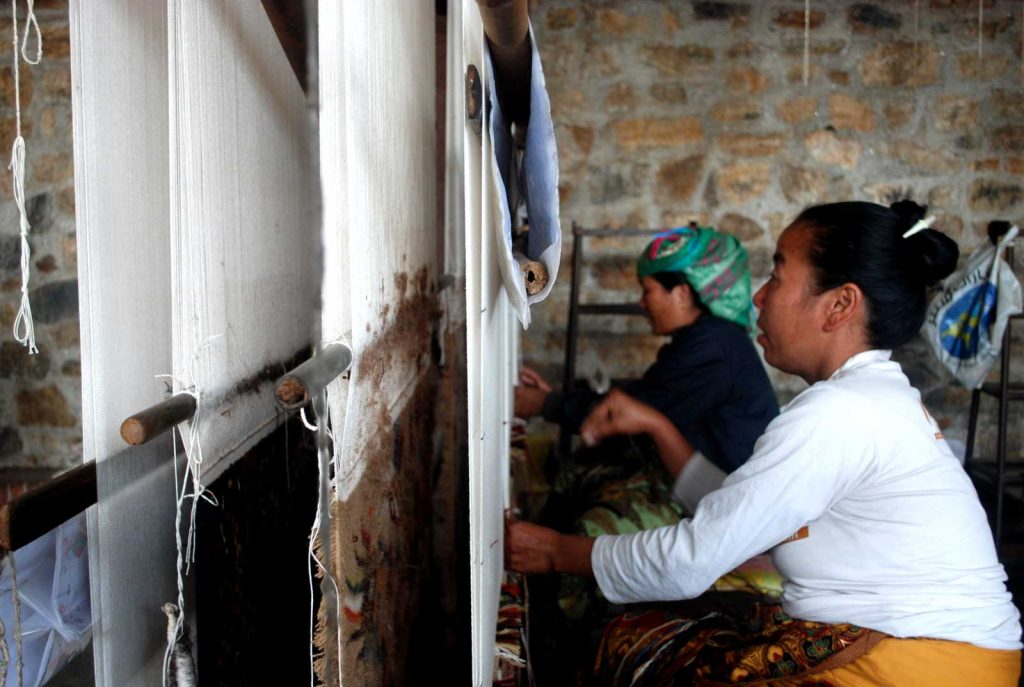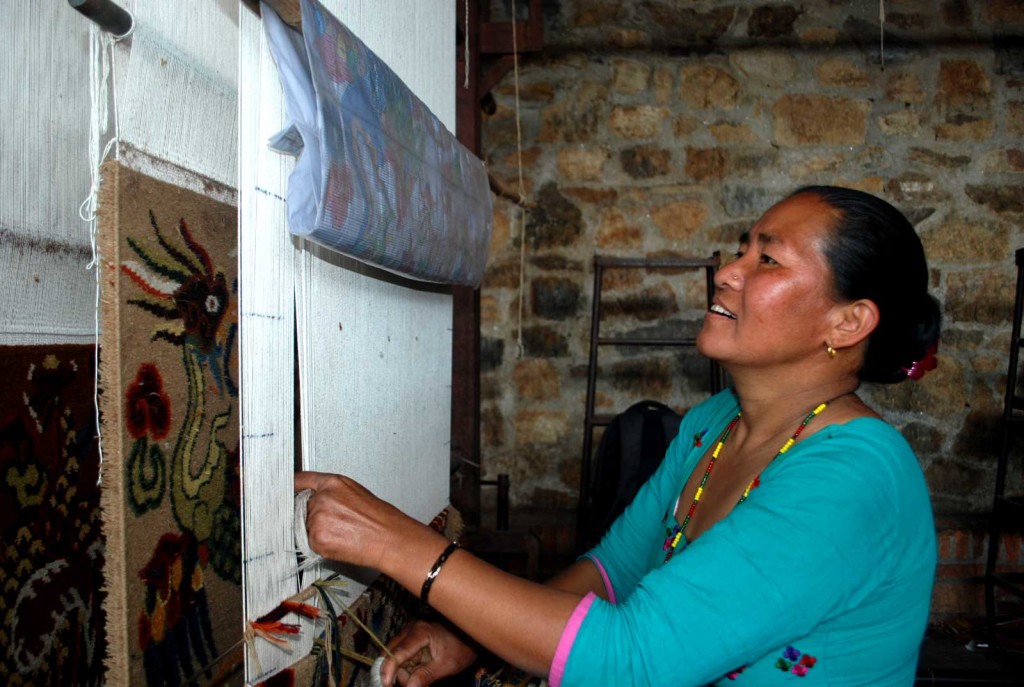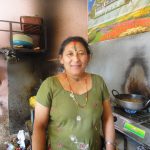I got married at 16. My husband lived in Kathmandu and he brought me along with him when I was 18. Since there wasn’t any paying work in the village it made sense for me to come here and work to support my husband as he studied in a Government School. I started working in a carpet factory and learnt how to weave from my sister in law.
Born and raised to a poor farmer family in Dolakha we had barely enough things to survive. We were five siblings, three brothers and two sisters. We never got to study because my family thought it was useless for girls to get an education. My daily routine was to go to forest nearby and bring fodders and wood. So I didn’t have enough time to go to school anyway. When I go to a bank today I have to put my thumbprint instead of signing, which makes me feel bad. But it’s too late now.
When I first started my work as a carpet weaver I had to get up at three or four and go the carpet factory to start working. We all lived around the factory so it was a quick walk away. The mornings were filled with sound of machines. My husband used to cut up the carpets. We could take our first break at eight am and finally get to brushing our teeth, having breakfast, and preparing lunch. My husband had to go to school during the afternoons so he could accompany me only after his classes were over. Eventually he had problems focusing on his studies as we lived around the factory so he ended up taking a room outside on his own. All day long in the factory while working we could hear Tamang Selo and songs from all the different ethnicities that worked there. We worked and sang. Younger girls and boys used to flirt with each other and many got married as well.
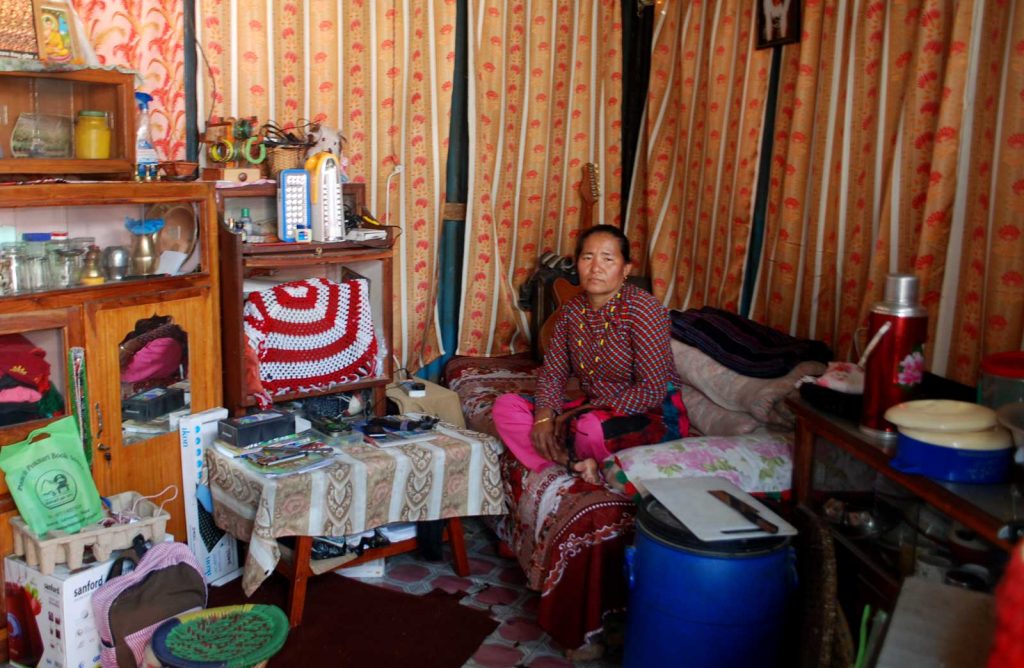
I was supporting my husband economically and with all the household work. After having children, I moved out of the carpet factory and in with my husband. We thought it would be a better living environment for the kids. Everything was smooth and our living went quite normal until he was diagnosed with the severe tuberculosis. Slowly we ran out of resources. I had to manage my work in the carpet factory, take care of his medicine, help the children and take care of our home. We went through a hard time with all the expenses like the medical treatments, medicines, oxygen cylinders, education for my children, and just living in general. I had no choice but to move back into the factory in order to pay less rent. This was probably not the best for my husband because of all the wool flying around and the toxic fumes in the factory used for color and dye.
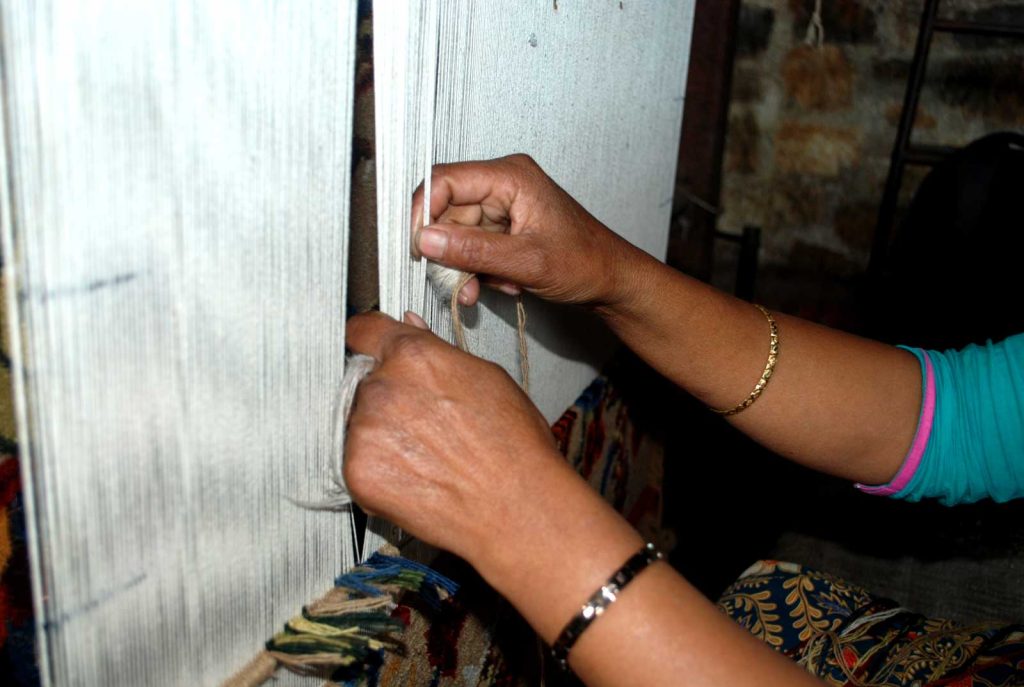
My husband died in 2007. I am still living inside the factory where the room made up of corrugated zinc sheet which is very hot in the summer and very cold in the winter. The zinc sheet was filled with holes so during the monsoon we collect water inside buckets in the room.
I cannot help my children with their education because I am illiterate. My husband used to help them, as he was educated. It has been more than twenty years working as a weaver in carpet factory. We had our life going on until dark days haunted us. As a worker I have felt that we should be given basic facilities like health, water and sanitation services. Since we have low wages, atleast they can provide us with some basic living facilities. In the past they provided us with some basic amenities like health, free polio drops and educational bonus for our children. But these days we don’t get anything. The only extra we get beyond our salary is a Dasain bonus, which is Rs 500, which is not even enough to buy one kg of meat for our family’s celebration.
Back in those days many weavers did manage to improve their living standard. Those who could change with time and grabbed the right opportunities have advanced in their lives. Some have moved out and started their own businesses, some started their own carpet factory and some made beautiful houses in their villages. They were then able to give some opportunities and basic rights to their children as well.
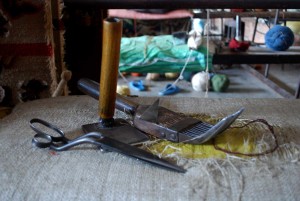
But anyway I am happy now, even if I had a difficult life of a manual laborer, I have my children who are educated. I can see my dream being fulfilled through them. Because of the struggle I faced being a single mother, my children understand me better. My son has been abroad for three years now and all our loans are paid. He just recently completed his bachelor’s degree. My older daughter is teaching as well as studying for her bachelor’s degree and my younger daughter is still in school.
My greatest pride is when my daughter said to someone one day, “ My mother has taught me to face and fight all obstacles. She has taught me to fight continuously and move ahead in life. She is real source of inspiration. She never gave up on us.”
